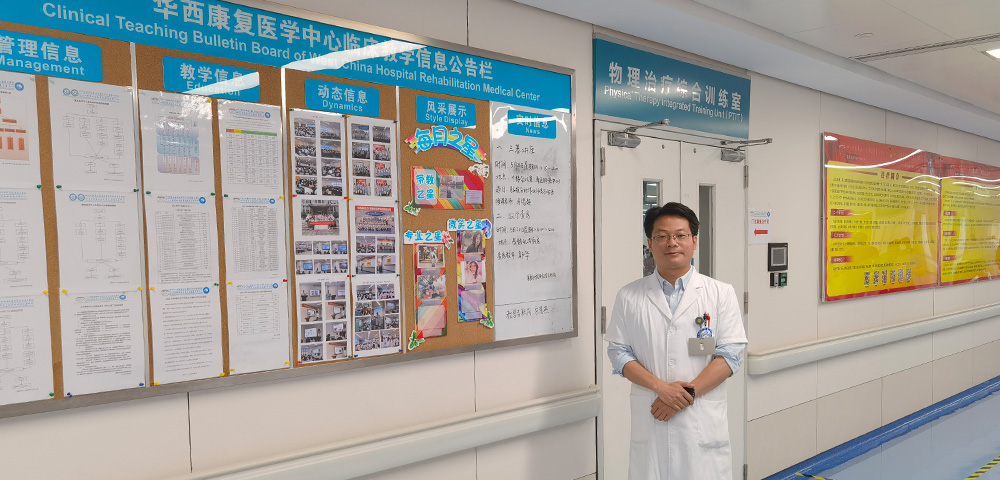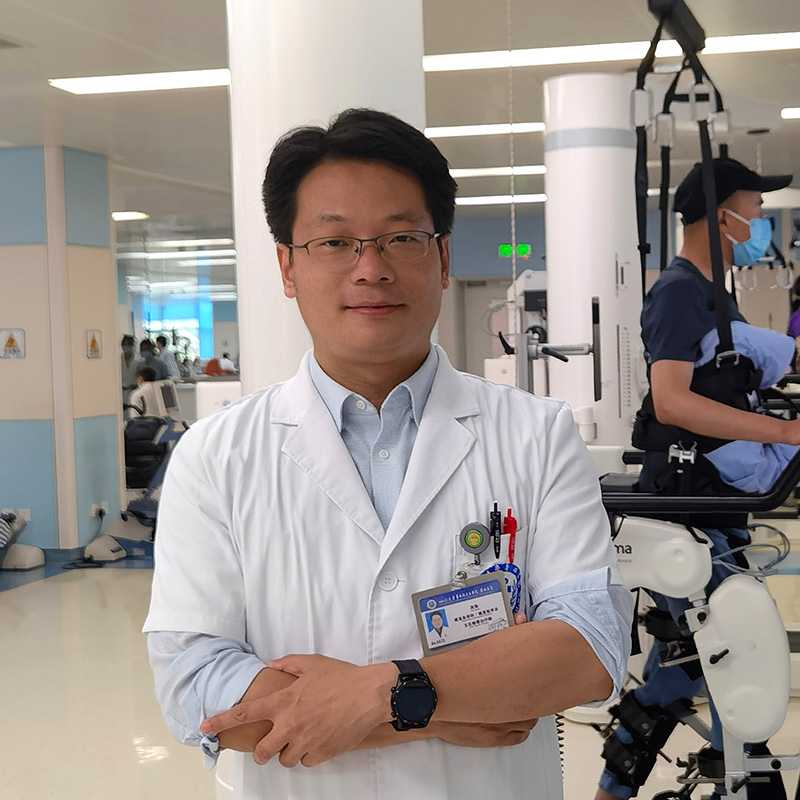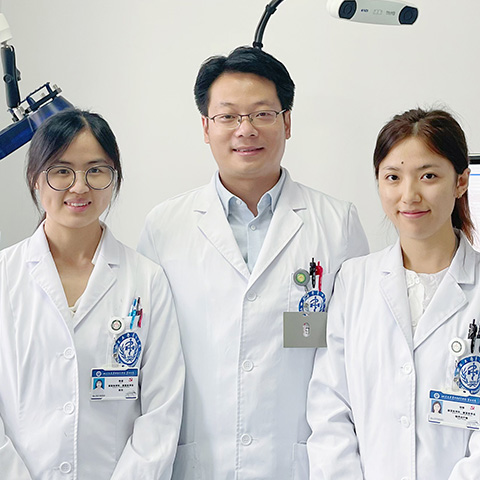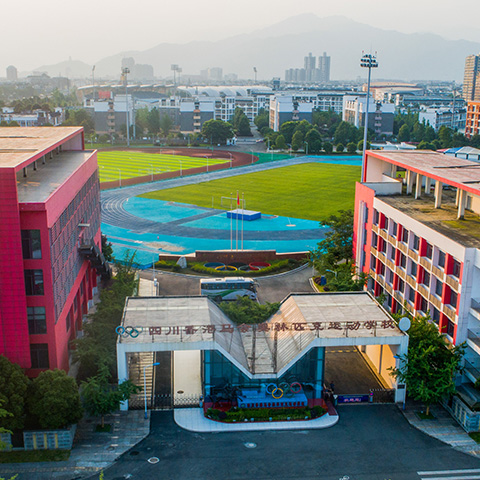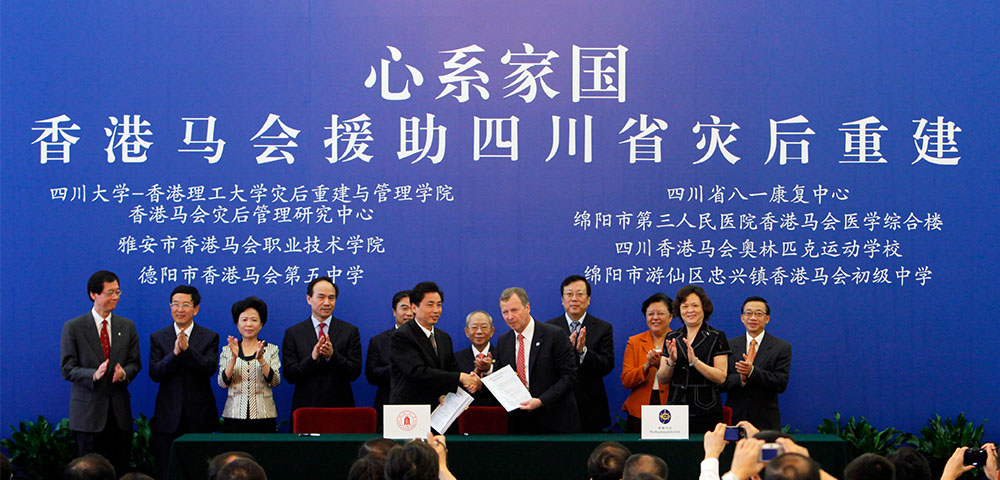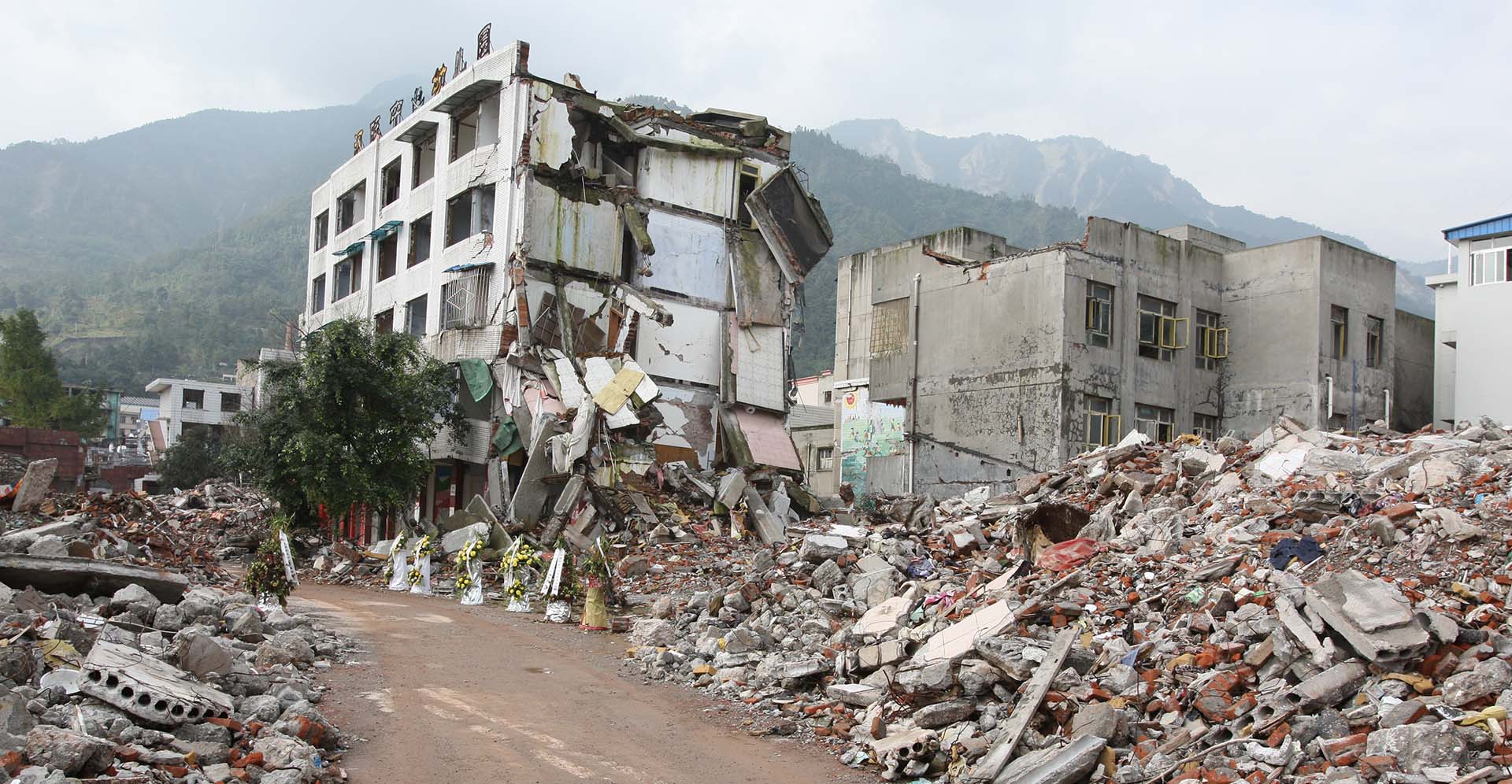Others
Earthquake aftermath: growth and strength
Dr Gao: “It takes different professions to rebuild Sichuan. Not on just one discipline.”
In June 2019, a magnitude six earthquake shook Yibin City in Sichuan Province. Dr Gao Qiang, a rehabilitation sciences professor and chief physiotherapist at West China Hospital of Sichuan University, rushed to the disaster zone the next day. Working with a team of nurses and counsellors, he devised rehabilitation plans within 48 hours for more than a hundred injured people.
“The reaction was much quicker than with the Wenchuan Earthquake in 2008. I have grown a lot over the past ten years,” says Dr Gao. When the Wenchuan Earthquake happened, he was an on-the-job postgraduate student working in the Rehabilitation Sciences Department of the West China Hospital. The disaster devastated Sichuan, yet the medical workers working in its aftermath did not have up-to-date knowledge of rehabilitation and lacked practical experience in post-earthquake reconstruction. This made Dr Gao eager to pursue further studies in these areas.
After the Wenchuan Earthquake, Sichuan University and the Hong Kong Polytechnic University joined hands to set up The Institute for Disaster Management and Reconstruction – the first of its kind in China – with an approved donation of RMB200 million from The Hong Kong Jockey Club. Dr Gao applied to do a PhD at the institute after hearing the news. He was among the first batch of doctoral students in the programme when it was launched in September 2011. “It takes different professions to rebuild Sichuan. Not on just one discipline,” says Dr Gao. “Everyone was looking to the universities to generate the relevant teaching and research. We need the knowledge to prepare for future disasters.”
Dr Gao calls his PhD experience in Hong Kong “eye-opening”. Apart from furthering his knowledge of rehabilitation sciences, he gained a personal understanding of the role The Hong Kong Jockey Club plays in society. “I used to think the Club was all about horse racing,” Dr Gao says. “But during my time in Hong Kong, I learned that the Club’s Charities Trust, driven by a strong sense of social responsibility, has been making immense charitable contributions towards social development.” After completing his PhD, he returned to work at the West China Hospital, providing physical therapy to patients, as well as teaching in Sichuan University’s Rehabilitation Sciences Department.
